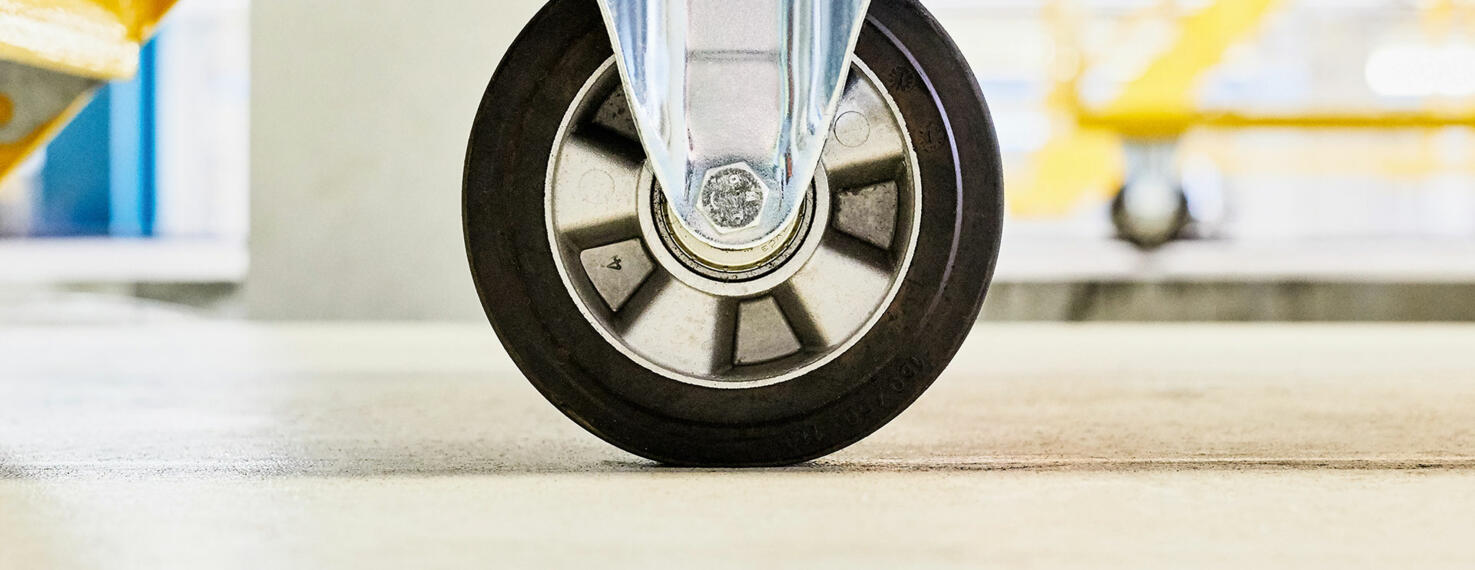
Castor housing
A castor basically consists of three important components: the wheel, the fitting and the castor housing. When considering housings, a distinction is made between housings for fixed castors and housings for swivel castors. Swivel castor housings can rotate around a vertical axis and thus allow the castor to move in any direction. In contrast, fixed castor housings are rigid and allow only one direction of travel.
Castor housing are usually made of sheet steel in different weights or malleable cast iron. In some cases, plastic housings are used. The advantage of this variant is that it is very insensitive to chemical influences and weather conditions, but its load-bearing capacity is limited compared to the other materials.
The construction of the housings is designed to achieve the highest possible load-bearing capacity and easy swivelling with a low construction height. An important factor here is the offset, i.e. the distance between the centre of the wheel axle and the centre of the king pin. The offset influences the swivelling capacity, the load capacity, the wear of the back bearing and the running behaviour of the castor.
Back bearing or swivel bearing
The type of swivel or back bearing used depends on the load and on the requirements regarding the running characteristics of the castor. Plain bearings are commonly used for lighter loads – such as for furniture or chair castors. Wheel centres and ball bearings are usually made of steel. These are available in versions with a single or double row and as a deep groove ball bearing. The latter rotate easily even at maximum load and are wear-resistant. For particularly heavy loads, on the other hand, roller bearings are to be preferred. Because of their large diameter, they take up a high load torque;
Housing surface finish
To ensure that the housing is durable, a surface finish is recommended. The choice of finish depends on the environment in which the castors are to be used. Stainless steel or washable castors are ideal for strict hygiene requirements. Similarly, a sealed back bearing helps to prevent corrosion of the bearing.
Do you have any questions about the housing or surface protection? Please contact us – we will be happy to help you!
